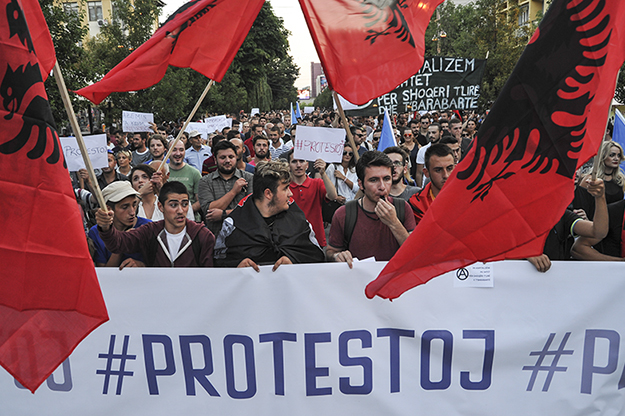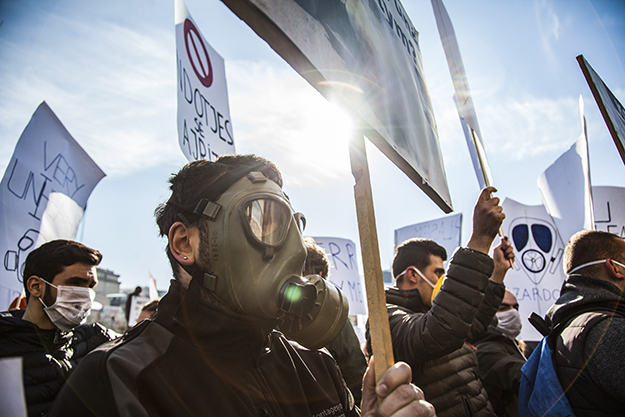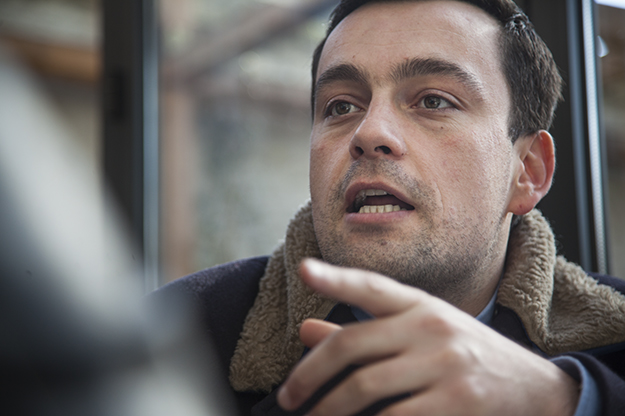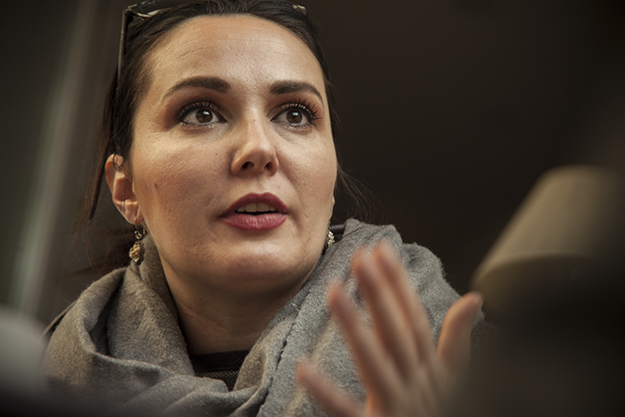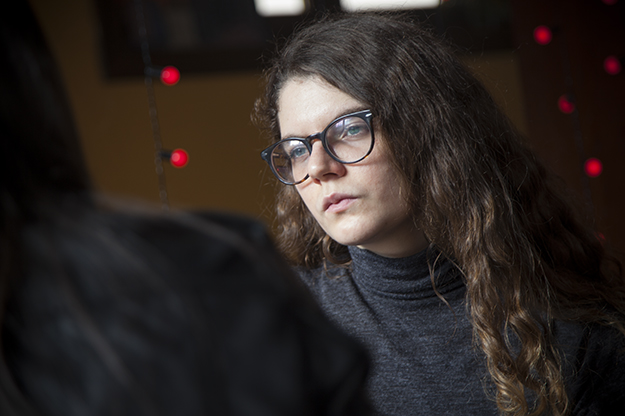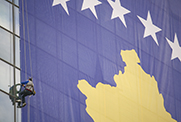In January 2013, Kosovo’s institutions were caught off guard. Kosovo Energy Corporation’s (KEK) disproportionate raising of electricity bill prices ahead of privatization was met with civil protests.
A Facebook post by a journalist resulted in citizens taking to the streets. For the first time after Kosovo’s 2008 Declaration of Independence, Prishtina’s public space saw a mobilization that wasn’t called for by a political party, nor for an issue that concerned the country’s statehood. Instead, it was a call demanding good public services.
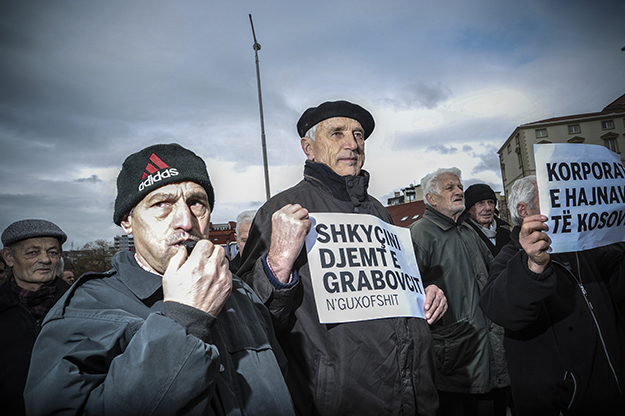
A steep increase in energy prices led to Kosovo’s first citizen-led post-independence protest. It’s an issue that has subsequently repeatedly gotten people out onto the streets. Photo: Atdhe Mulla / K2.0.
“Until 2013, it was only Vetevendosje that was affiliated with the word ‘activist.’ The activist was identified with Vetevendosje because they were very active with the public sphere in Kosovo and all the issues they raised,” says Rron Gjinovci, who is now director of the Educational Research Center Organization (ORCA).
Since it had emerged as a political movement in 2005, Vetevendosje’s mass protests against the international community and Serbia’s interventions in domestic policies had taken over the squares, streets and even borders, making it the strongest channel for activist voices in the country.
Gjinovci himself was part of Vetevendosje until 2012. Just one year later, during the mobilization against the increase in electricity bill prices, he found himself engaged in a rally as an independent activist for the first time.
“I think that it marked the building of a new culture of protesting and activism, which is still continuing today,” Gjinovci says. “It faces many challenges because [the old mindset] still exists — that the activist needs to be part of an official or unofficial political organization, party or institution. That damages activism. And I think we really managed to break these prejudices to a large extent.”
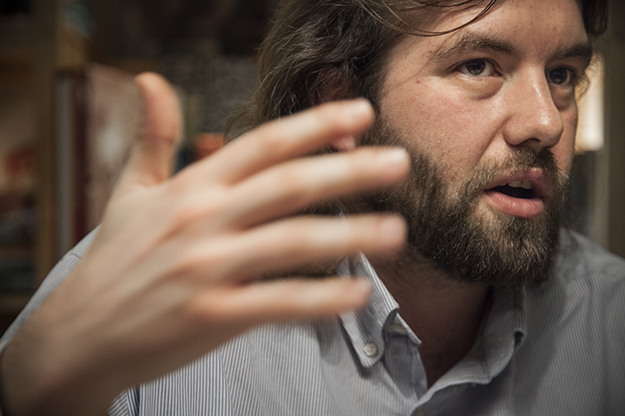
Former Vetevendosje member, Rron Gjinovci, has continued his activism in recent years as an independent citizen. Photo: Majlinda Hoxha / K2.0.
Gjinovci became a well-known face when, as part of Vetevendosje, he threw red paint at the then University of Prishtina rector, as a reaction against poor conditions in Kosovo’s main educational institution; while many supported the motives behind the protest, it also caused controversy, with many at the time considering the action to be unduly radical.
Even subsequently as an independent activist over the years, he has helped to organize different actions and protests, attempting to pass on the knowledge of activism that he gained in Vetevendosje. But, he says he has also consciously tried to make a complete break from Vetevendosje by using demonstration speeches that represent the voice of the many and not the person who reads it, and by excluding potential hate speech and violence.
Regardless of the detachment from a political party, he says that activism is always political at its core. “I think that activsim cannot be nonpolitical,” he reflects. “It can be nonaffiliated with a party, but everything that is treated in the public sphere is political, and in this case, the activist is political.”
Transitional adjustments
Gjinovci’s civil participation is part of societal actions addressing issues of public concern that have not only redefined activism in Kosovo in the past five years, but that have given a completely new dimension to civil society as a whole.
The whole concept of civil society is one that has been defined variously and perceived in different forms: as citizens and organizations independent from the government, either keeping the establishment under scrutiny, or coming together for a common cause, or in the shape of a community-based initiative, like neighbors gathering to clean their neighborhood.
It gained a lot of attention in eastern European states after the fall of communism as civil society came to be seen as an organization of citizens and groups — be it in formal or informal organizations — that aimed to fill up the sphere where the government no longer had access, to provide a kind of counterbalance to state institutions.
“One of the arguments in political sciences was that in order to create a democratic society there is the need to create a civil society,” says Nita Luci, a lecturer in the Program for Gender Studies and Research at the University of Prishtina’s Faculty of Philosophy, who came to discuss the term as an anthropology student in the ’90s.
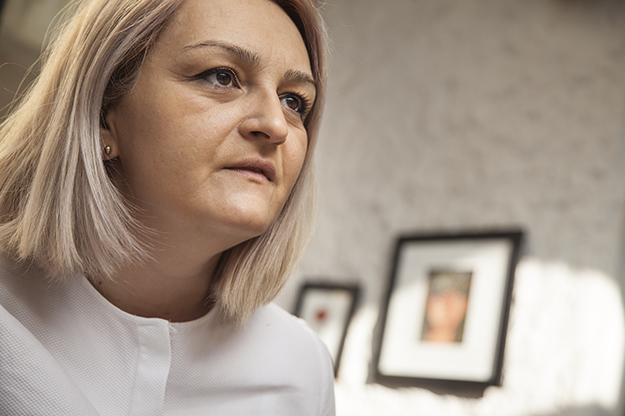
Sociologist Nita Luci asserts that civil society has long existed in different forms. Photo: Majlinda Hoxha / K2.0.
But Luci, and other scholars, highlight that from an anthropological perspective, it is wrong to say that there wasn’t a civil society before the breakdown of communism or socialism.
“During the ’80s, the neighbor would let you know that the shop had been refurbished with groceries and you went to get them. This can be taken as a form of engagement for common needs,” Luci says. “It can seem like a simple example, given what civil society is focused on today: laws, comments, protests. But in that daily life, when you were faced with a poor quality of life and a lack of essential things for life, this could be very important. At the same time there were dissidents, different underground organizations.”
When Kosovo’s autonomous status within Yugoslavia was revoked in 1989, civil society became part of the resistance movement to Slobodan Milošević’s regime, as the alternative health, welfare and educational services — in close cooperation with the parallel government — replaced the function of ministries. But, the decade of oppression hardly allowed different voices to flourish, as the political elite within LDK — the main political party that led the peaceful resistance during the ’90s — suppressed any other voice that opposed the unity and national interest of Kosovar Albanians.
From 1999, the international community became the main trigger for the re-building of civil society. With the post-war establishment of the United Nations Mission in Kosovo (UNMIK), one of whose duties was the functionalization of civil society, it became one of the first areas to be regulated by law and overwhelmingly developed through donor-driven projects, making nongovernmental organizations (NGOs) the dominant form of organization.
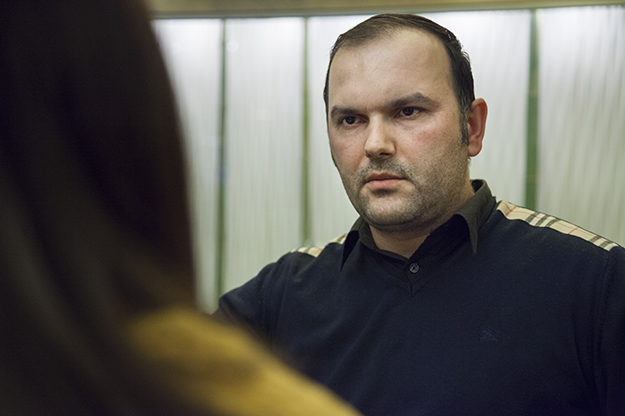
Sociological researcher Driton Zeqiri argues that UNMIK’s laying of the foundations of Kosovo’s post-war civil society was problematic in terms of accountability. Photo: Majlinda Hoxha / K2.0.
Driton Zeqiri, a researcher and PhD candidate in sociology, sees the UNMIK administration, as a continuation of stifling independent voices. He believes that UNMIK wasn’t interested in seeing civil society act as a counterbalance to the state, and that UNMIK itself didn’t answer to the needs of citizens but was accountable only to its headquarters in New York.
“We had a building of civil society from somebody else, which is UNMIK in this case, which offered the creation of NGOs; it offered legal infrastructure. But in principle, those NGOs didn’t accomplish their [intended] role in terms of opposing government structures and the establishment, which was UNMIK itself,” Zeqiri says.
But Luci argues that UNMIK didn’t remain completely unchallenged over the course of its administration, particularly through the voice of women’s rights organizations, which were very vocal in their demand to apply UN Security Council Resolution 1325. Resolution 1325 calls for an adoption of a gender perspective to consider the particular needs of women and girls during post-conflict reconstruction, and to increase the role of women in peace and security efforts.
By raising their voices, Luci says that activists made it clear that UNMIK wasn’t the sole arbiter in defining and shaping Kosovo’s civil society, but that it already had its own roots.
“UNMIK has a forgetfulness on many levels when it comes to the history before the intervention and its establishment,” Luci says. “And women’s activists’ protests and their approach to the highest ranks of UNMIK shows that they didn’t allow the history [of their engagement] to be deleted.”
While the voices of women’s activists have at times met a lot of resistance during the state building process — the government only approved an action plan for implementing Resolution 1325 in 2014 — feminist NGOs have also contributed a lot to the shaping of civil society and have made up a large portion of the human rights package that has received a lot of international support during the democratization process.
But, the broad public discourse of human rights being an essential part of a democratic society has developed simultaneously with the long process of privatization, in which thousands have been left unemployed, only adding to widespread poverty. The needs of jobless former workers and the social protection of those that have a workplace have never been adequately raised, partly because of the long history of political influence on trade unions and partly due to a selective concern on human rights from international donors.
Socio-economic progress has been prioritized at the expense of tackling workers’ rights violations, with Luci arguing that the process of transition from socialism to capitalism has seen trade unions being treated as organizations that potentially threaten the open market, and that civil society has been left to treat the symptoms rather than the causes of inequality.
Confusion and scepticism
As the post-war years turned into the years of independence, the notion of civil society in Kosovo has often been viewed with increasing scepticism.
One reason for this has been the transition of outspoken opposition voices across to political parties and the government; today, from ministers and advisors, to mayors and senior government officials, many are former critical voices from within the media and other bodies that hold the government to account.
“Of course, this has rarely resulted in greater cooperation,” says Venera Hajrullahu from Kosovar Civil Society Foundation (KCSF). “Most ex-civil society leaders who have entered politics have become typical politicians, absorbed by the closed system of party politics with no real influence on international decision making.”
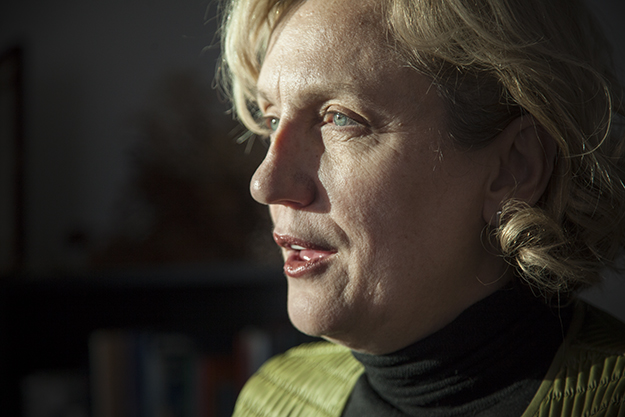
KCSF director Venera Hajrullahu says that NGOs proliferated after the war, at a time when there were huge rebuilding requirements. Photo: Majlinda Hoxha / K2.0.
Hajrullahu emphasizes that moving from one sector to another is not necessarily a problem, but the lack of resultant progress has contributed to a perception that many civil society leaders use civil society merely as a step into a political career. “Thus, the more critical their voice in civil society, the higher the position they are offered by the recruiting political parties,” she says.
But there is also another, perhaps more fundamental, factor influencing the scepticism toward Kosovo’s civil society: To a large extent the notion of ‘civil society’ has come to be conflated with NGOs and has therefore become inextricably linked to their accomplishments — but particularly their failures.
This idea is reinforced by the media and international missions in Kosovo, with journalists in television debates only ever referring to NGO representatives when they use the term ‘civil society representatives,’ and staff from missions doing likewise in their various meetings and functions.
Indeed, in many ways, NGOs have come to dominate the civil society sector following a massive explosion in numbers after the war, and today there are more than 9,000 such organizations registered in Kosovo. “The needs for emergent actions, rebuilding and reconciliation [immediately after the war] were massive and found a lot of financial support from foreign donors,” says Hajrullahu, who explains that donors shifted their focus from emergency response, reconciliation and vulnerable groups immediately after the war, to promoting democracy and state building post independence.
Following independence and the creation of Kosovo’s institutions, NGOs have played a huge role in assisting policy making and the drafting and revision of legislation; this is widely considered to have led to a greater level of institutional transparency.
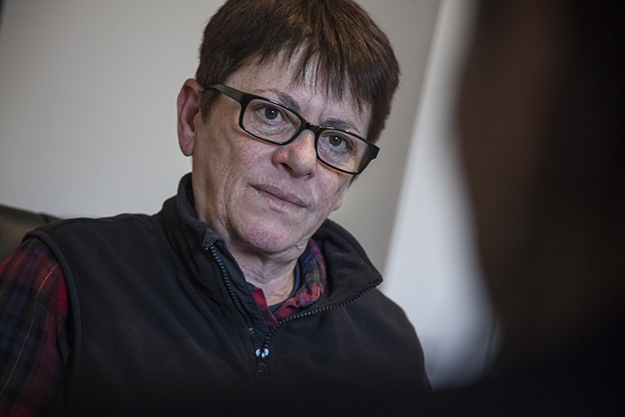
Igballe Rogova says that NGOs such as her own, Kosovo Women’s Network, have played a significant role in influencing important legislation. Photo: Majlinda Hoxha / K2.0.
Igballe Rogova, director of Kosovo Women’s Network, explains how gender equality mechanisms, including the Law on Gender Equality and the Law on Protection Against Domestic Violence, have come about as result of identifying the problems through a combination of field research, protests and collaboration with institutions. “We protested but still the government didn’t take domestic violence seriously. Then we did the research to show that. And gradually the mechanisms were created,” she says. “We knocked on the door, we pushed the processes.”
Gjinovci also highlights that part of the widespread use of the term civil society as a synonym for NGOs is that other elements of civil society were doing little. “The most active factor for civil society in Kosovo since the war ended were NGOs,” Gjinovci says.
“Did you ever see the academics or a group of professors raising their voices for a cause. Did you ever hear Kosovo’s Academy [of Arts and Science] raising a concern in real time? Or any trade union? So all these other factors of civil society were — and continue to remain — silent.”
But there is also a widespread belief that NGOs themselves have not done enough to use their potential influence, and that due to their funding models, much of the activism that has stemmed from them has failed to be seen as organic or to have the potential to bring about social changes.
Linda Gusia, a sociologist at the University of Prishtina, agrees that despite the good work of NGOs, donor-driven projects have led many people to look with scepticism at NGOs, “that they do the job just for money, just for donors.”

